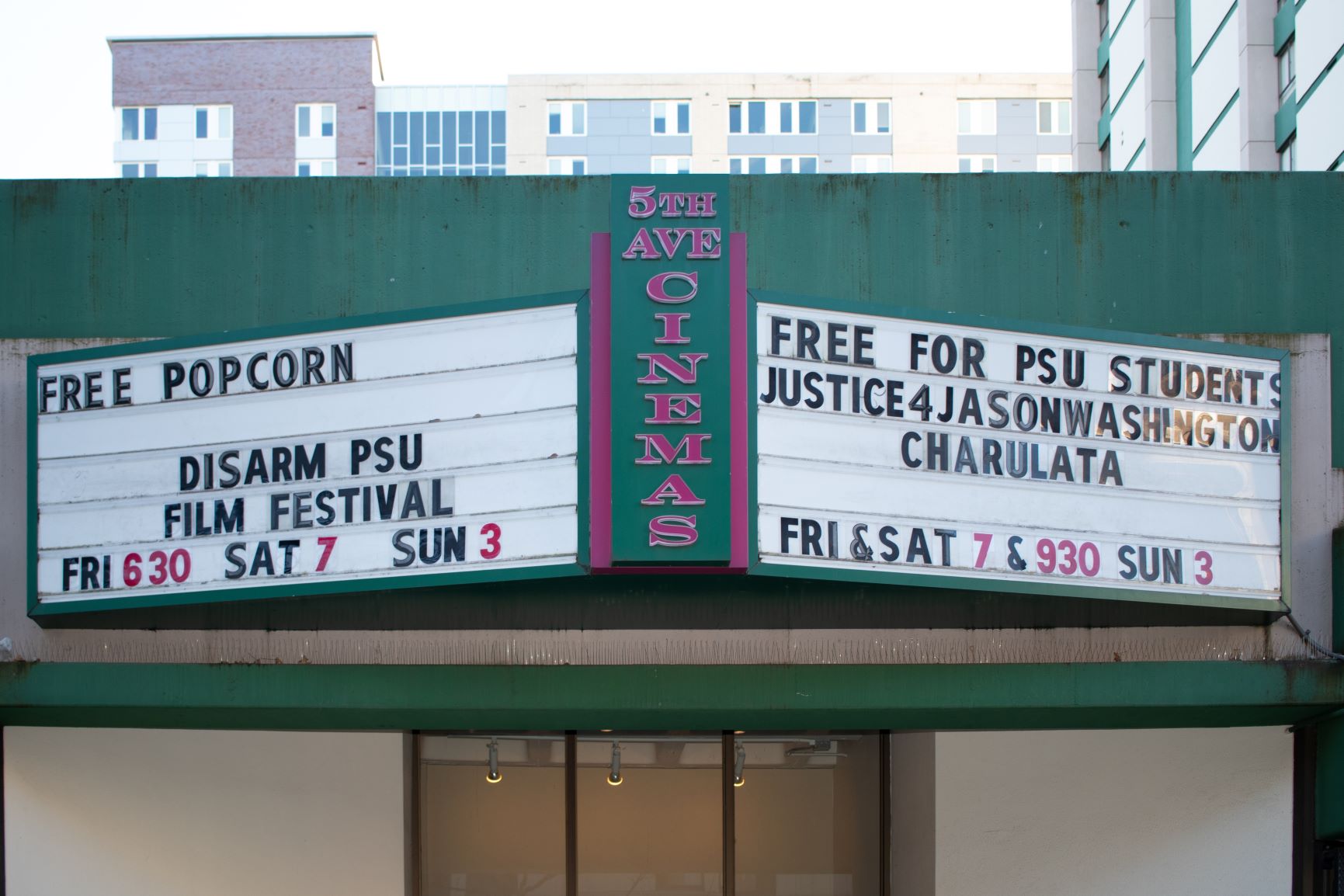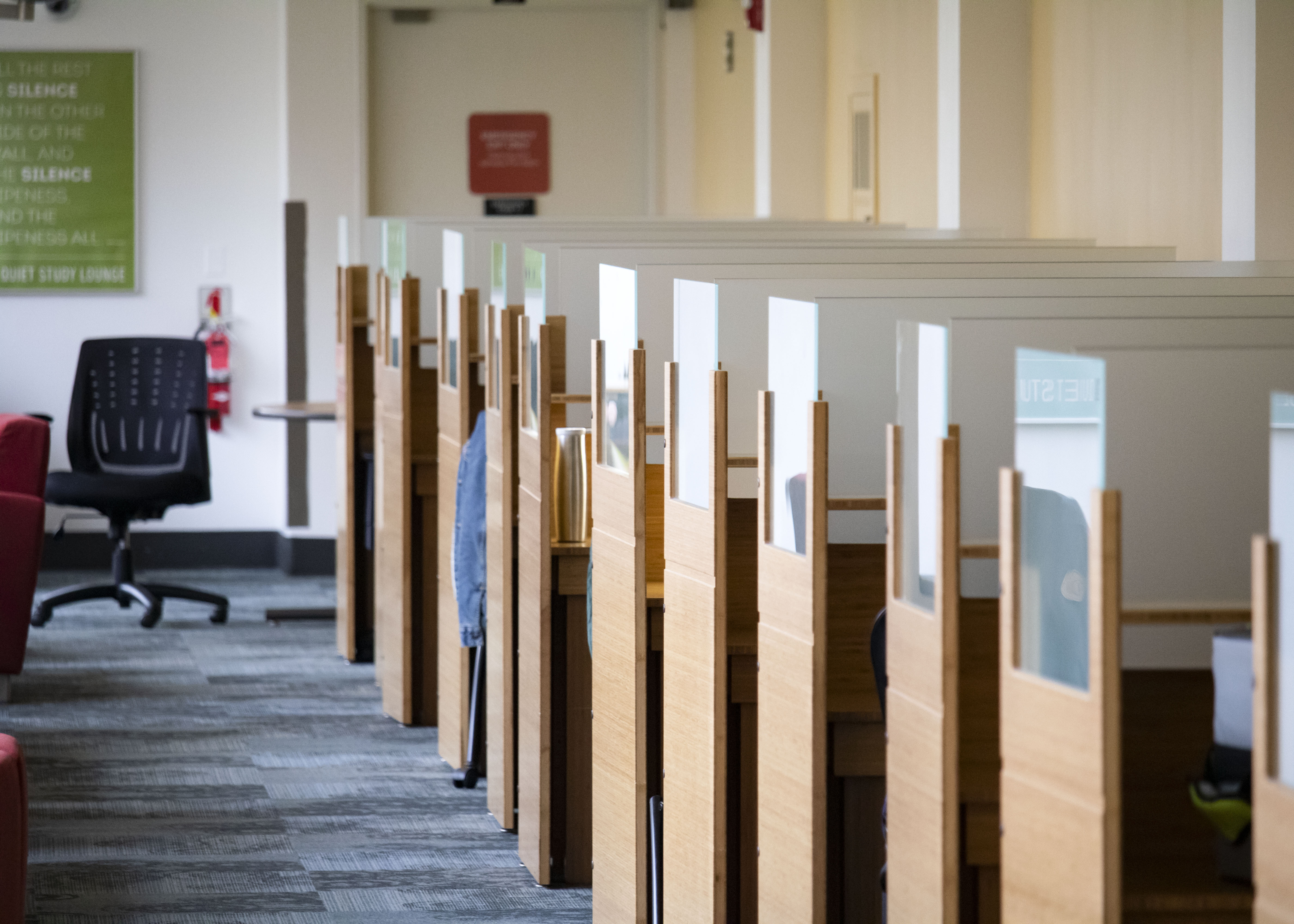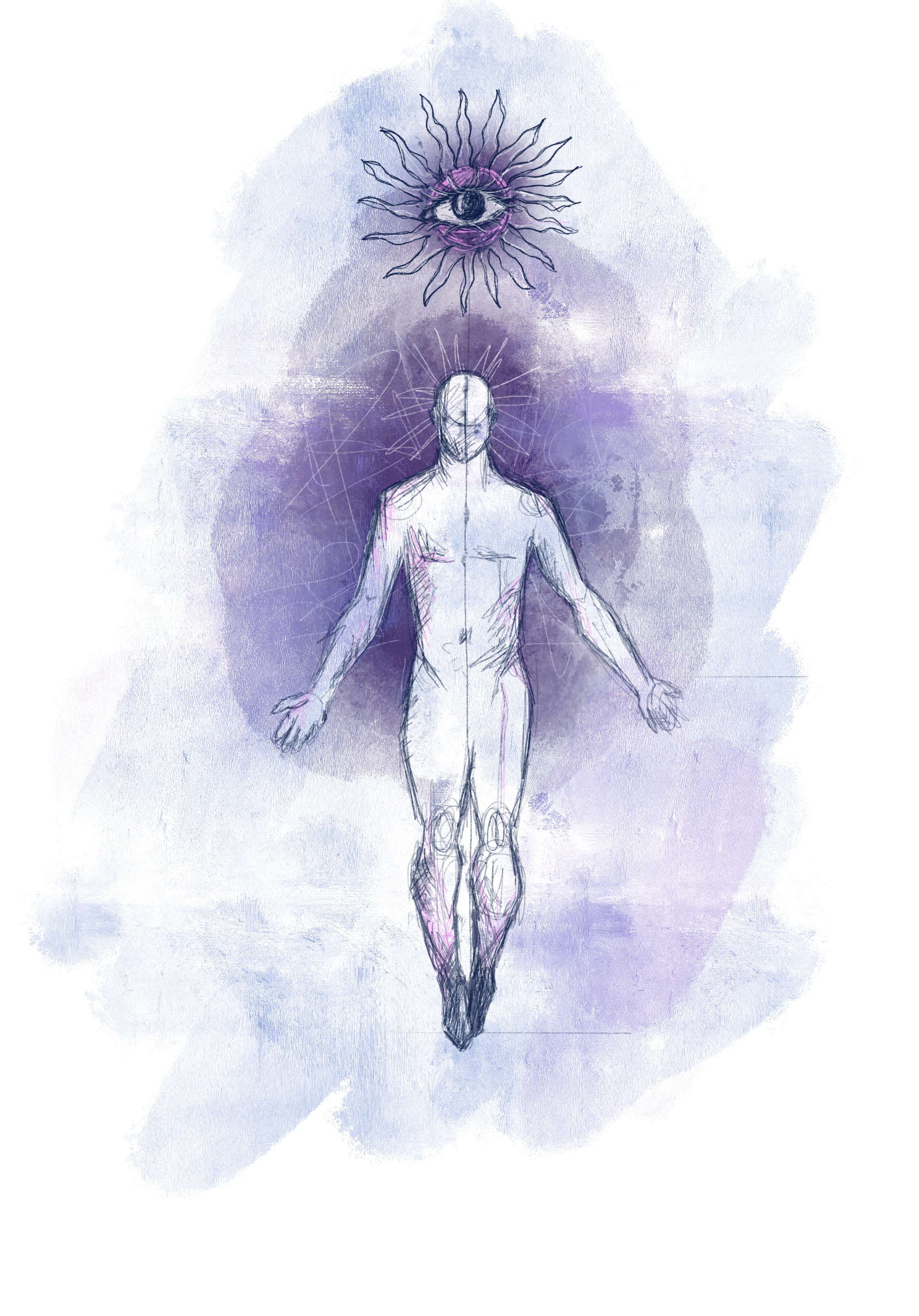#DisarmPSU Film Festival, hosted by 5th the Portland State University Student Union, was a three-day long event of films, lectures and workshops that focused on the roots of resistance, especially on campus. From all the history that was offered, those roots run deep.
The lectures and workshops were mainly spearheaded by Portland State students and staff. Faculty members Dr. Lisa Bates of the School of Urban Studies and Planning gave a lecture on PSU’s current struggles within the context of the festival’s programming, and Dr. Ho’esta Mo’e’hahne of the indigenous nations studies department lectured on anti-indigenous violence and colonialism. Students from the PSUSU led “Grassroots Organizing Workshop,” focusing on a history of student struggles from Portland to South Africa, as well as a history of the PSUSU and the tactics they employ to spread their message of promoting student autonomy.
Mason Mimi Yadira, Ari Dato and Olivia Pace discussed the mechanisms of demonstration and protesting that students employ today and how they have drawn inspiration from historical protests around the world. They talked about protests in Montreal, France and South Africa, and how the PSUSU was formed in 2012 by students inspired by those Montreal protesters who fought against a sudden and unjustifiably high tuition hike in their universities. Tactics discussed included tabling, sit-ins and die-ins, online activism, rallies and strikes—especially strikes that encouraged students to leave classes for the day and attend a meeting or gathering.
No matter who was speaking, attendees were listening.
“Dr. Ho’esta Mo’e’hahne’s lecture on indigenous resistance was the most popular,” said one of the organizers, Kaitlyn Dey, who also noted that the film about Standing Rock’s response to police activity was well received.
The festival organizers were the driving force of the #DisarmPSU movement, having tried to get the film festival in full swing since the fall 2018 quarter. When asked about the difficulties of planning this event, Dey explained they faced less pushback from the university than they were used to. The only real hassle, according to Dey, was contacting all of the directors to ensure that they could air the films. This posed a real challenge, considering many of the films were small and dated. The first showing of the festival, for example, was a collage of archived footage of PSU protests of the 1970s. Another film was produced entirely by PSU students in 1970—with contributions from the 1970 Vanguard team—that were difficult to seek out today.
That particular film, entitled Seventh Day, was striking to watch from the perspective of a current PSU student. Seeing footage of Lincoln Hall, Parkmill, Broadway and the Park Blocks obscured by the flickering grain of black and white film, stirred up feelings of a strange familiarity—like a forgotten nostalgia for the campus we walk on every day. The most striking part, however, was seeing the footage of these spaces being crowded with student demonstrators and peaceful marching. Arms linked and peace signs flashing, they sung “We Shall Overcome” while grinning at the camera. The film then goes into showing scenes of Portland police tackling protesters with their backs turned, kicking fallen students, ramming protesters into a first aid tent and more vicious actions that perfectly encapsulated a student’s protest sign: “NON-VIOLENCE? TELL THAT TO THE POLICE.”
How long until our campus looks the same? How long until the current student body is marching to City Hall, just as they did in 1970, to protest the issues that concern us today? The programming of the festival kept those questions in mind and presented attendees with options and opinions on how to proceed.
Going forward, the PSUSU hopes that #DisarmPSU attendees were inspired enough to get involved with the union’s plans. The organization plans to attend the PSU Board of Trustees meeting on March 7 and speak out about the militarization of campus police. The public is welcome to attend, and they hope to see some familiar and inspired faces from the festival showing up in support.
Maggie Lombard is a future theatre educator and current grocery store cashier. She has been published by the Portland State Vanguard and Neopets. You can find her online @calilombardi on twitter or in the park blocks, acting like a Disney princess to urban pests.







I was a PSU class of 1970 grad who was in the Park Blocks that spring peacefully protesting the Vietnam War and shipments of nerve gas scheduled to be shipped soon thru Portland. On May 11, ’70 I was knocked to the ground and clubbed by Portland cops and sent to the hospital, which remains a vivid memory all these 49 years later. I’m very pleased that PSU students of today had the opportunity to see “The Seventh Day”, which was awarded at the 1970 NY Documentary Film Festival and hope it inspires a new generation of political activism.
Wow! It is amazing to hear from someone who was there. I’m glad you stumbled upon this article. I was amazed while watching “The Seventh Day” and was glad to have the chance to watch it.